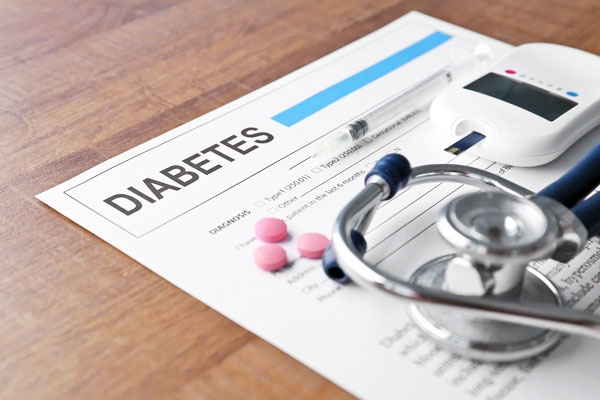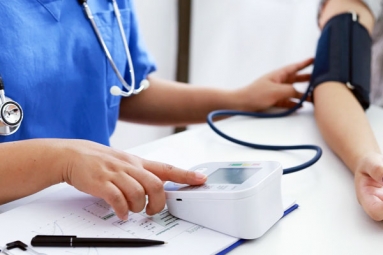
(Image source from: Canva.com)
A type 2 diabetes diagnosis often requires ongoing treatment, monitoring, and concern about complications. However, recent research from the University of Glasgow indicates that under certain conditions, it may be possible to bring the disease back to a non-diabetic condition. In medical terms, when we talk about remission of type 2 diabetes, it means that blood sugar levels fall below the diabetic range for a certain period without any medication or surgical intervention. This is not the same as being cured because, in many instances, the underlying risks and biological processes remain unchanged. Since the term "reversal" is sometimes used similarly, it's essential to clarify. In practical terms, this translates to a significant and lasting enhancement in blood sugar regulation, typically implying a cessation of diabetes medications.
The main issues with type 2 diabetes involve insulin resistance, especially in the liver and muscles, and the pancreas struggling to produce enough insulin. Research indicates that the accumulation of fat in the liver and pancreas plays a crucial role. When excessive fat infiltrates these organs, insulin production decreases and glucose management deteriorates. The Diabetes Remission Clinical (DiRECT) study conducted by the University of Glasgow and other research have shown that quick weight loss reduces fat in the liver and pancreas. This improvement allows the pancreas to generate insulin more effectively and enhances the body's ability to utilize it, which can sometimes lead to the disappearance of diabetes. Roy Taylor's "Twin Cycle Hypothesis" describes this relationship concerning fat-related dysfunction and recovery.
Individuals with type 2 diabetes often manage to return their blood sugar levels to normal by shedding excess weight and enhancing their insulin response. Solutions like weight-loss surgery, very low-calorie diets, or cutting down on carbohydrates and calories have demonstrated notable advantages. In some scenarios, these changes have even enabled individuals to stop relying on diabetes medications. For those dealing with severe obesity or conditions such as diabetes, high blood pressure, or sleep apnea, bariatric surgery provides a medical approach to restoring health. It is generally recommended for individuals with a BMI over 32 if other health issues exist, or over 35 when facing extreme obesity. With robotic-assisted techniques, surgeons can be more precise, reduce bleeding, and support faster recovery for patients. Procedures like sleeve gastrectomy and gastric bypass decrease the stomach size and alter hormones related to hunger, aiding in weight loss and improved blood sugar management. Findings from the STAMPEDE and ARMMS-T2D trials have shown that surgery results in lasting weight reduction, enhanced blood sugar control, and decreased reliance on medications. The Cleveland Clinic's STAMPEDE study revealed that patients who underwent surgery had significantly better diabetes management compared to those only on medical treatment.
Another research by Buchwald and his team revealed that between 76% and 92% of individuals were able to experience remission post-surgery, highlighting the beneficial impact of bariatric surgery. This can assist many in reversing the impacts of type 2 diabetes. Investigations involving very low-calorie diets (VLCDs) indicate that losing around 15 kg or more can help type 2 diabetes go into remission, particularly if the weight loss occurs shortly after diagnosis. For example, nearly half of the participants in the DiRECT trial who shed 33 lb (approximately 15 kg) or more in the first year achieved remission. This approach requires solid support, careful monitoring, and effective strategies to maintain weight loss. Some research has also demonstrated that dietary therapies focused on reducing carbohydrates or calories can lead to remission. These dietary changes can lower blood sugar levels, reduce insulin needs, and assist individuals in losing weight. In one study involving intermittent fasting, over half of the participants remained free of their condition for at least a year.
The likelihood of diabetes going into remission is greatest when treatment starts early, before the pancreas undergoes significant damage and insulin-producing cells are still functioning well. Significant weight loss and its maintenance are crucial as well. Even a 10% reduction in body weight can enhance the body's response to insulin, but losing 10 to 15 kilos or more greatly boosts the chances of complete remission. Individuals who have had diabetes for only a short period, experienced less initial glucose exposure, preserved their beta-cell reserve, and encountered fewer complications tend to do better. For many, remission remains more of a hope than a frequent reality. Achieving remission does not mean that diabetes is permanently eliminated. The underlying vulnerability remains unchanged, and gaining weight, stopping physical activity, or confronting other metabolic challenges could lead to a relapse. At present, remission rates in typical community environments are rather low. For instance, in a significant Scottish database, under 0.1% of patients were deemed to be in remission. Additionally, the longer someone has had diabetes, the less likely they are to experience remission. The guidelines continue to emphasize managing high blood sugar and cardiovascular risks rather than ensuring reversal.
If someone has type 2 diabetes and is determined and medically fit, they might be able to reach remission. Key actions to take include:
Begin losing weight quickly and thoroughly to eliminate visceral fat
Offer structured support for very low-calorie or carbohydrate-restricted diets when safe
Engage in regular physical activity and strength training to increase the body’s insulin sensitivity
Carefully monitor glucose, insulin requirements, and any issues during and after the process
Ensure long-term follow-ups with strategies to maintain weight loss and prevent relapse.
Doctors should also be clear that getting better is not a sure thing. They need to emphasize the importance of ongoing care and ensure that regular preventive treatments are being carried out. Research shows that type 2 diabetes can improve or even disappear, and an increasing number of studies support this claim, especially when individuals lose significant weight and adjust their metabolism early in the illness. Procedures like weight-loss surgery, very low-calorie diets, and carbohydrate-reduced meal plans have proven to be very effective in helping type 2 diabetes go into remission. However, not everyone achieves remission. It requires effort, continuous medical check-ups, and a long-term dedication to a healthier lifestyle.
It's more helpful to view remission as a possible goal rather than the expected outcome. Future efforts should aim to make weight-loss programs more accessible, ensure they are sustainable, and incorporate remission into the standard plans for managing diabetes.



















